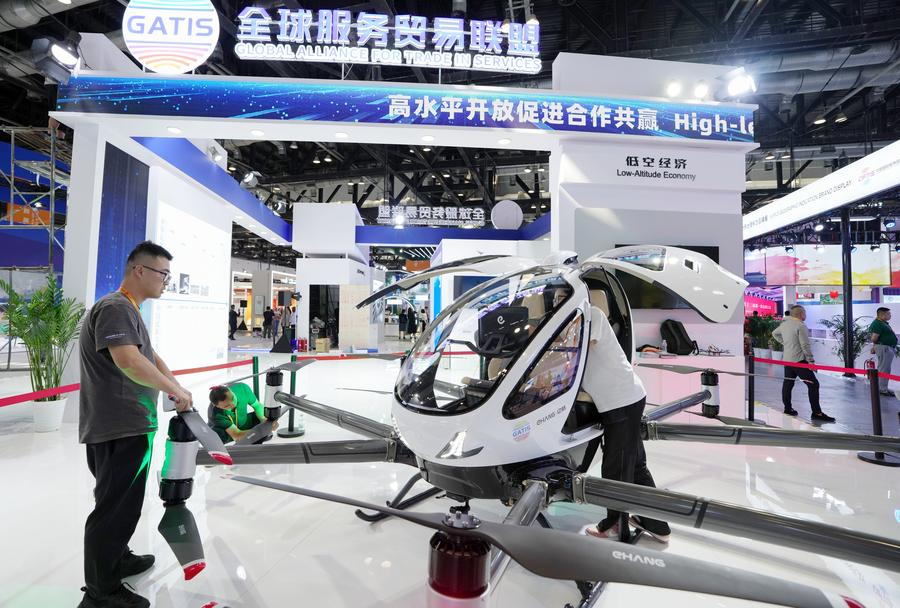
This screenshot shows the short video posted by British TikTok influencer, the Hutchinsons, demonstrating their first experience of drone delivery service in Shenzhen, south China's Guangdong Province.
By Liu He
"China is already in 2030!" said the Hutchinsons, a British family who owns almost 200,000 followers on TikTok, when they experienced their first drone delivery service in Shenzhen. So far, this vlog has topped all of their posts, gaining an eye-catching 7.8 million views.
The rapid development of smart technologies in China has amazed many foreign visitors as they flock to China after its launch of the 144-hour visa-free policy.
For instance, videos of a robot delivering food to the corresponding hotel room have swept across social media and gained lots of likes. Allison Paige, a travel vlogger, shared her video showing a robot delivering food to her hotel room with just several taps on her mobile.
"This is just so great and convenient. This is something I absolutely love about staying in hotels here," she said.
After "China Travel" went viral, the hashtag "China Hotel" has also become a hit on many social media and video platforms overseas.
This increasingly intelligent travel experience is a result of China's accelerated efforts to build smart cities over the years. A nationwide network of integrated intelligent vehicles, smart roads, and real-time cloud technologies is being rolled out.
Visitors can even enjoy the high-tech facilities one step ahead of the public. In late June, passengers traveling between Beijing Daxing International Airport and Yizhuang were able to choose the services provided by driverless robotaxis with advanced reservations on mobile.
Although these robotaxis are operating under the supervision of safety drivers behind for security concerns, this breakthrough in self-driving technology marks a significant step for China's intelligent transportation.
"Driverless taxi in China" is also among the popular searches on social media. Italian influencer Andrea posted a video on Tiktok of himself taking a driverless taxi in Guangzhou.
The built-in screen showed the surrounding situation to him as the taxi went. After a short yet smooth ride, Andrea got to his destination and waved goodbye to this taxi.
"This is mindblowing," said Andrea. His video got over 121,500 views within half a month.
In May, China unveiled a guideline on promoting the development of smart cities and urban digital transformation to make urban management smarter. By 2027, China expects to see significant progress in the digital transformation of urban areas and will have built a number of smart cities that are more livable and resilient, according to the guidelines.

This screenshot shows the short videos posted by influencers on TikTok, showing their experiences of driverless taxis in China.

An autonomous driving taxi, operated by Chinese autonomous vehicle company Pony.ai, runs on a road in Nansha District of Guangzhou, south China's Guangdong Province, June 15, 2022. (Xinhua/Liu Dawei)

Staff members check an unmanned aerial vehicle at the China National Convention Center in Beijing, capital of China, Sept. 11, 2024. (Xinhua/Ju Huanzong)



